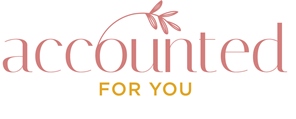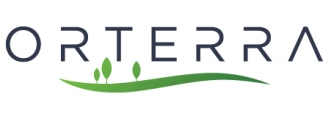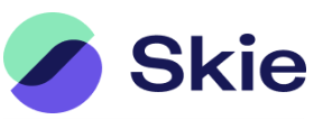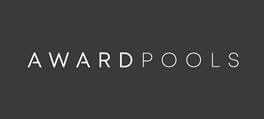
It’s a candidate’s market where for the first time candidates hold the power. There’s a great resignation or a great reshuffle as people seek the grass that’s greener. The skill gap is widening day by day, leaving businesses scrambling to find people with the right skill mix for roles that need fulfillment. These are three messages that I see on LinkedIn almost every day of late, and while there’s some truth to them, like most things on social media, the devil is in the detail and the alarmist nature doesn’t do a lot to help.
The goal of recruitment is to find and employ the best candidate for a role. In the olden days, we’d put an ad in the paper, the applications would roll in and off we’d go interviewing, checking references, making offers, making counter offers then onboarding. Things are a little different now, thank goodness, and a huge part of my work with people as their outsourced HR Director is setting up HR policies and practices that solve contemporary problems with equally contemporary solutions.
Selective sourcing is one such example. In simple terms, selective sourcing is proactive searching for a qualified position candidate as opposed to a reactive filtering through curriculum vitae and applications sent in as a result of a job posting. That said, there may be times when a job ad is required but it can be done in a way that does the selective sourcing for the organisation. While I’m not a recruiter, my work overlaps this function in many ways, and I love working with people to help them identify talent through a strategic process that aligns the needs of a business with the skills, expertise and aspirations of a potential candidate.
Let me be clear here- selective sourcing isn’t about those LinkedIn direct messages that make you want to take a shower in pine-o-clean. Like everything at Kath Harris HR HQ (I love all those H just for the record!) it all comes back to values. Values should underpin everything from position descriptions and job ads and the interview process.
Role clarity is critically important as this will determine all efforts to source staff selectively, be it through a job ad or a networking event or a LinkedIn conversation. Any detail around the role needs to be aligned to what’s actually required and positioned to bring in the right candidates. I’ve seen organisations take a position to market, get candidates lined up and then change the role with a shift in goal posts and a downgrade. That’s demoralising for candidates to put it mildly and a sheer waste of time and effort for all.
By definition, selective sourcing involves screening and this should be done in a variety of ways beyond the interview. Some great clients of mine used recording of a short video that answered basic targeted questions.
The screening process can happen before the formal interview. I worked with an organisation to bring in a short/initial screen where people had a 20 minute phone conversation before moving through to the next stage. This is where we prepared with a set of questions that would check cultural fit for the organisation as well as confirming the candidate met the minimum requirements, competencies and technical skills for a role. Where needed, it might be worthwhile to do additional screening such as psychometric testing or other screens.
One of my essentials for selective sourcing is appropriate processes. As a D on the DiSC tool , there’s nothing worse than making someone jump through unnecessary hoops. It’s important to create a process that’s aligned to the level of the role. In some cases it might be asking candidates to do a presentation or provide a case study. This shows how the candidate prepares, problems solves, communicates and comes across to others, however also be respectful that it’s not overly extensive nor overly imposing on their intellectual property. I’ve heard horror stories of people interviewing for social media management roles and having to provide strategies including content suggestions, only to hear that the role has been absorbed in house, yet their strategies and content ideas are subsequently rolled out across platforms. This isn’t cool.
In terms of reference checks – while my research tells me the jury is out, that they’re an outdated practice, for me this is a maybe, and it goes back to the role and the organisation. This is where having a talent referral program is great. If people in the company are willing to refer a role to friends or previous professional colleagues then that says alot about the culture and the business as well as the candidate.
As always, communication is telling – including how the candidate speaks. What is their attitude like? Are they open? How do they come across? Are they showing interest? Have they researched the company? I’ve jumped on screening interviews where the candidate has needed to be reminded of the role they are interviewing for! In one memorable occasion it became very clear that someone hadn’t even researched the company which didn’t bode well for their potential of employment. It’s also worth tapping into how they talk about their current employer and how they want to close things out with them.
Selective sourcing is a way to get out of the pile of inappropriate or misaligned job applications and build a team that’s perfectly matched against the needs of a business, both now, but also in meeting its aspirations. It’s something I love working through with clients – if you’d like some support aligning your recruitment efforts with your business goals and values, why don’t we have a chat? Click this link and we’ll make it happen.

Related Articles
How to motivate people: aligning their attitudes with values
A values-led culture seems to be the holy grail of workplaces, for good reason. Like attracts like. People want to work in organisations that align...
The secret sauce of attracting and retaining incredible talent
Did you know that the number one predictor of length of employment is the quality (or lack thereof) of the onboarding experience? That’s right:...

HR strategies and tips to your inbox
Get the latest human resources tips and insights into your inbox. Sign up now to stay updated and receive practical advice tailored for both HR professionals and business owners to help your business thrive.
READY TO GET STARTED?
Start shaping the health and heart of your business today


CONNECT WITH US

CONNECT WITH US
Unscripted HR acknowledges the Traditional Custodians of Country throughout Australia and their ongoing connection to land, waters and community. We pay our respects to Elders, past and present.

Unscripted HR acknowledges the Traditional Custodians of Country throughout Australia and their ongoing connection to land, waters and community. We pay our respects to Elders, past and present.










